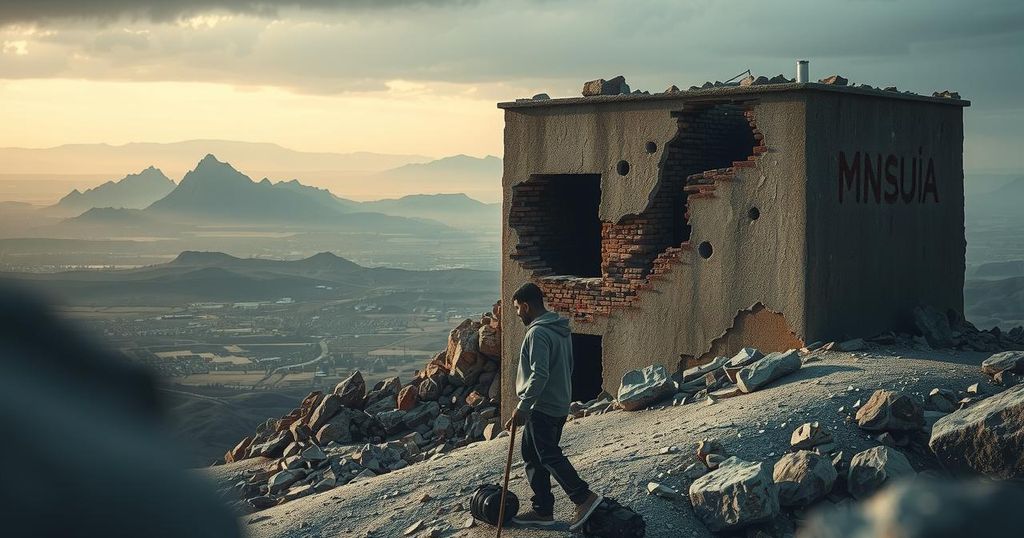On January 27, 2025, armed conflict escalated in Goma, DR Congo, as government forces fought against Rwanda-backed M23 rebels. The city is facing severe humanitarian issues, fueled by rising violence and ongoing ethnic conflicts. International condemnation of Rwanda’s role in the conflict emerged, as local protests called for action. President Tshisekedi is set to address the nation’s response to the crisis.
On January 27, 2025, conflict intensified in Goma, Democratic Republic of the Congo, as government forces clashed with Rwanda-backed M23 rebels, who reportedly captured the city. Residents described the sound of gunfire and explosions, with combat zones prevalent throughout Goma. The city, which serves as a critical humanitarian hub, struggles amid one of the largest humanitarian crises globally, exacerbated by the ongoing violence.
Goma has a history of turmoil, with the M23 rebels previously seizing the city in 2012 before retreating due to international pressure. Their resurgence, attributed to increased Rwandan support, has raised alarms within the international community. Despite claims of control over Goma by the rebels, residents expressed uncertainty regarding the situation on the ground.
The escalating violence has had dire consequences, with numerous peacekeepers and soldiers killed, indicating a significant rise in hostilities. The United Nations humanitarian coordinator for Congo expressed deep concern regarding the deteriorating humanitarian situation, as many civilians are caught in the crossfire. Aid groups face substantial challenges accessing displaced individuals in need of assistance.
Roadblocks around Goma and the closure of its airport hinder evacuation and humanitarian efforts, unleashing further distress on the already vulnerable population. Prominent global actors, including the United States and European nations, have criticized Rwanda’s involvement, while Rwanda contends that Congo’s failure to adhere to peace agreements has provoked the current crisis.
Secretary of State Marco Rubio emphasized the importance of recommencing peace talks between Congo and Rwanda. In Congolese capital Kinshasa, public outcry is evident as citizens protest against Rwanda’s actions in the conflict, with opposition leaders calling for direct actions and international support. Amidst this backdrop, President Félix Tshisekedi is expected to address the nation regarding future strategies to manage the escalating conflict and its implications.
The Democratic Republic of the Congo has been marred by conflict for decades, largely fueled by ethnic tensions and control over valuable mineral resources. The M23 rebel group, which has previously gained notoriety for its violent campaigns, resurfaced in late 2021 with alleged backing from Rwanda. This resurgence has led to increased instability and humanitarian crises impacting millions in eastern Congo, particularly in the region of North Kivu, where ongoing battles have displaced large populations and exacerbated living conditions for civilians.
The situation in Goma exemplifies the broader humanitarian crisis afflicting eastern Congo, particularly against the backdrop of escalating violence from armed groups like the M23. The international community’s response, local protests, and calls for continued dialogue highlight the urgent need for conflict resolution and humanitarian assistance in a region beleaguered by historical complexities and ethnic strife. Effective governance and adherence to peace agreements are critical to alleviating the suffering of millions displaced by this prolonged conflict.
Original Source: apnews.com






